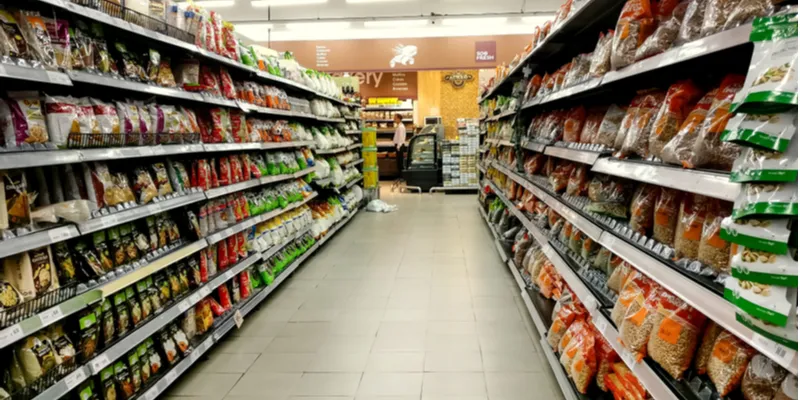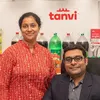Started with one product, how this Coimbatore-based entrepreneur built an FMCG company with over 120 SKUs
Sauber Intech was started in 2016 by Tamilarasan Praveen when he realised that there was a demand for disposable toilet seat covers in India. Today, Sauber has grown into an FMCG company with nine brands under it.
For several years, Tamilarasan Praveen worked as a textile technologist in Germany. After coming back to India in 2015, he joined his Coimbatore-based family business, Thamson Group (started by his father), which has several verticals in the fields of steel, iron, and textiles.
However, one of the things that Praveen found unmissable in Germany were disposable toilet seat covers. “I realised that there was a requirement for these seat covers in India as well,” he recalls in a conversation with SMBStory. Since not many players were producing this product, he decided to dive in.
In 2016, he started making toilet seat covers for the Indian market under a separate vertical – Sauber Intech. Around Rs 25 lakh was invested in the plant and the machinery. Praveen says that additionally, loans were taken for buying/renting the vehicles. In all, the total capital of Rs 1.5 crore was invested to start the business.
Today, Sauber has grown into a full-fledged FMCG company having nine brands – Comfey Care, Cari Care, Prima Donna, Milly Belly, Wippy, Coco Elixir, Karuk Muruk, Jade, and Desy Gazzy.
Moreover, from launching one product – the non-woven fibre toilet seat covers – in 2016, the company today has over 120 SKUs, including soaps, detergents, snacks, beverages, tissues, edible oils, ready-to-eat and drink products, and much more.
Entering a crowded market
According to a report by IBEF, the fast-moving consumer goods (FMCG) sector is India’s fourth-largest, with household and personal care accounting for 50 percent of FMCG sales in the country. Moreover, the market is crowded with several dominant players like ITC, Tata, Hindustan Unilever, Nestle, and Britannia, as well as relatively smaller players.
Praveen says that even though the market is crowded, it still has a lot of potential. “I think there is a lot of space for new brands to come in,” says Praveen.
It took about eight months for Praveen to survey the market and launch the first product. He adds that he would travel across the country to build a strong network of suppliers, distributors, and super stockers.
The company also opened several branch offices in about 16 cities in south India, including in Kerala, Karnataka, Telangana, Andhra Pradesh, and Tamil Nadu, to interact with the customers and distributors more closely.
Praveen also adds that the company has been focused on selling through the offline route since the beginning, even though it is present on ecommerce platforms such as Amazon.

Mapping the product end-to-end
Praveen says that the key to carving a niche in the FMCG market has been to sell through modern retail stores. “The distributors will try to push the product throughout their network of shops as well where your target customers may or may not come.”
He says that the selection of stores is very important, otherwise “an entrepreneur will feel very disappointed when the stocks are returned.”
Even today, Praveen says Sauber analyses the customer base and footfall before agreeing to sell through a store. “I think this has been a crucial part of our journey, which we also have learned over time,” he adds.
Sauber Intech sells across a network of three lakh outlets in south India, and sells pan-India through online channels. Praveen also notes that 90 percent of the sales come from offline channels.
Getting more brands on board
While Sauber developed Cari Care, Milly Belly, and Wippy in-house, others brands are manufacturers spread across Madurai, Nagercoil, Chennai, and elsewhere who sell through Sauber Intech.
“We help market their products as they are dealing with bigger brands and produce white label products for them,” explains Praveen. He further adds that Sauber charges a marketing fee from these manufacturers and allows them to sell under the umbrella of Sauber Intech.
Sauber has three of its own units in Coimbatore itself.
Sauber started with toilet seat covers in 2016 and introduced the disposable products category in 2017. From 2018, it started including other product categories such as snacks, ready-to-eat food, and more.
COVID-19 and the way forward
The arrival of the coronavirus pandemic in March 2020 caused immense uncertainty among entrepreneurs across the globe, and Sauber was not untouched. Praveen says that there was “fear and panic” within the team as well.
“It was a very difficult situation in the initial months as we had to burn a lot of stock as they neared expiry,” he recalls.
He says the reason why the company was able to survive was that it had a diversified portfolio. The company also started selling sanitisers during the same time, which helped in recovering losses and helping it sustain.
“Luckily, we were planning to introduce sanitisers just before the pandemic struck. The timing helped us as the demand for sanitisers grew exponentially thereafter.”
While the founder hasn’t revealed the revenues, he says Sauber Intech has several plans in the next 12-18 months. Apart from introducing new products and categories, it also plans to penetrate deeper into the places it is present in, including rural areas. Praveen says he wants to do it through the offline channel itself.
“We don’t find selling online very profitable. Selling online is profitable only when the minimum order is at least worth Rs 300,” he concludes.
Edited by Kanishk Singh










